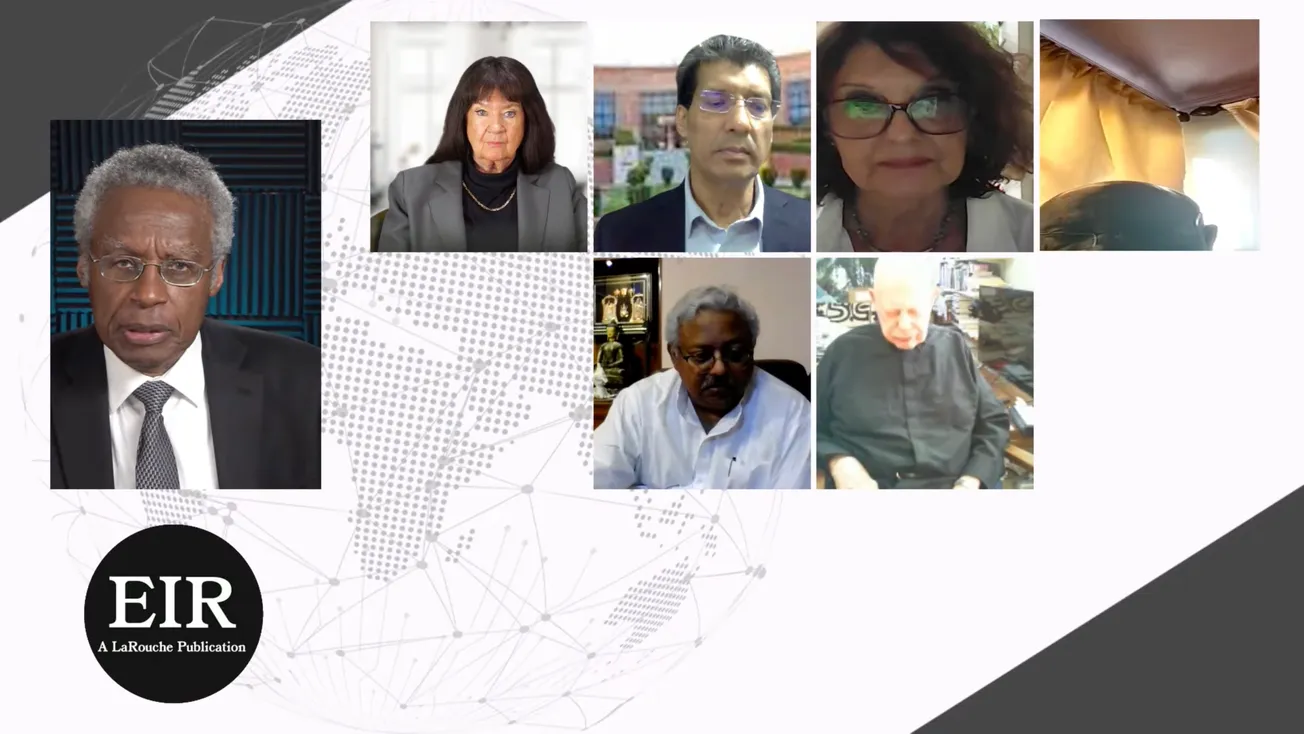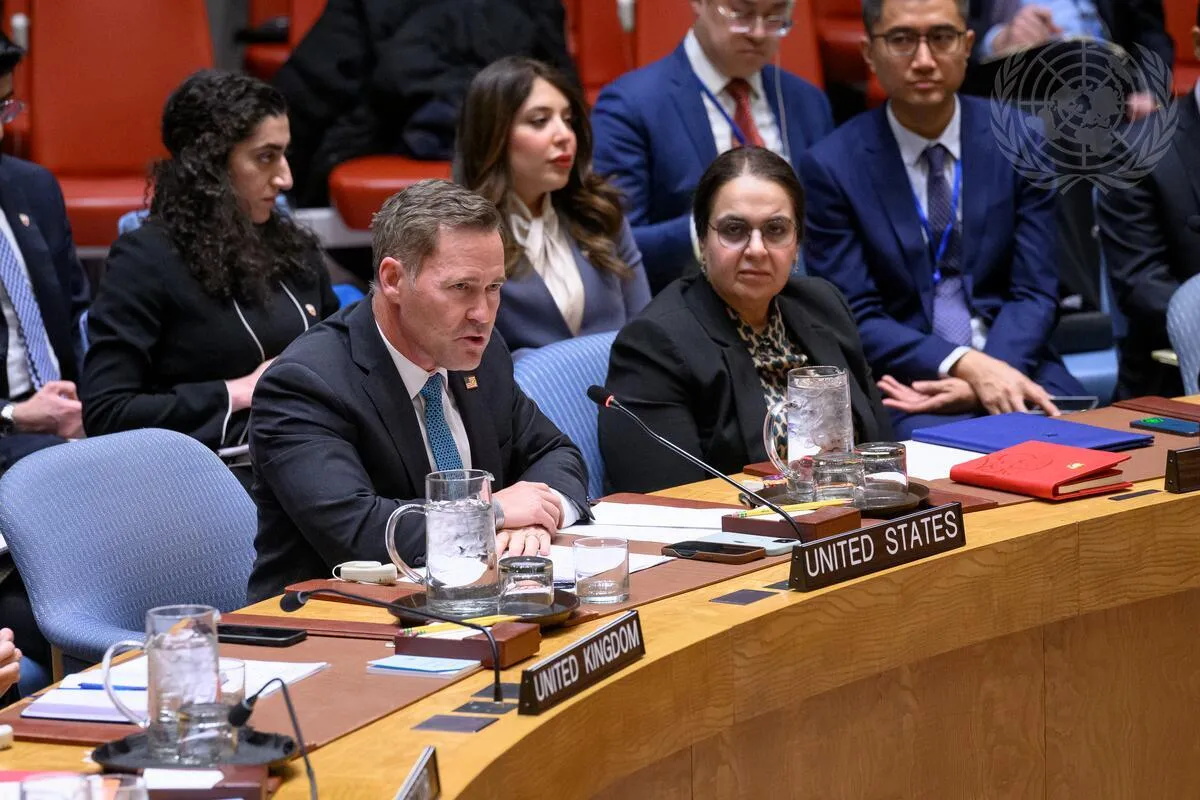Helga Zepp-LaRouche was interviewed today on the “Asia Today” broadcast of ChinaPlus, the English website of China Radio International.
CHINAPLUS: Chinese President Xi Jinping is calling on China and European countries to expand consensus and cooperation to jointly cope with global challenges. He made the remarks at a virtual summit with French President Emmanuel Macron and German Chancellor Angela Merkel. The Chinese leader says what the world needs is mutual respect and a sincere cooperation among nations.
XI JINPING [through translator]: At present, the global pandemic situation remains severe, [inaud; 01:19] studies. The prospects for economic recovery are uncertain and there is still a long way to go. The world more than ever needs mutual respect and close collaboration rather than suspicion and [inaud; 01:33] or zero-sum game.
CHINAPLUS: During the meeting, the German and French leaders expressed their support for the conclusion of the EU-China investment agreement, and added that they hoped the 23rd EU-China summit would take place as soon as possible.
For more on this, we are joined by Helga Zepp-LaRouche, founder of the Schiller Institute, a global political and economic think tank headquartered in Germany. Thanks for joining us, Helga.
HELGA ZEPP-LAROUCHE: Yes, hello; good day.
CHINAPLUS: So, what’s your main takeaway from this virtual summit, and what’s your assessment of the overall tone of the meeting?
ZEPP-LAROUCHE: I think from everything one can say, it was very constructive, and also much needed, because there were some recent difficulties after the European Parliament blocked the EU-China investment agreement. So, I think that they discussed the possibility of reviving it is very positive. Mrs. Merkel said that she wants to have this revived as soon as possible. And President Macron said that he supports the conclusion of the China-EU investment agreement. So, I think it was very useful and productive.
CHINAPLUS: The summit is coming at an increasingly tense moment for EU and China ties, given that the EU’s recent sanctions against China and its interference in the country’s internal affairs. So, will this call lead to a shift in the EU’s approach to relations with China? And possibly, easing confrontations between the two sides?
ZEPP-LAROUCHE: Yes, I think it will, and I think it’s also important that this comes only four days after the very hysterical statement coming from the Lithuanian Foreign Minister, Landsbergis, who had on Friday last week called for an end of the French-German dominance of the EU. He wanted to have a unified EU policy on China, which in his terms means against China. He even said that he wants to set up offices in Taiwan. So, I think this was a clear rebuttal of this position of Landsbergis, so I think that that was very useful.
CHINAPLUS: What’s your assessment of the current EU policy on China in general? Do you think that the tough stance recently taken by the EU side against China needs to change? As we know, China became the world’s largest EU trading partner last year, overtaking the US. European business leaders have expressed their hope that the EU will strengthen cooperation with China, rather than shut it out and decouple.
ZEPP-LAROUCHE: Yes, I think such a change is really very urgent, because, as it was mentioned by President Xi Jinping, the world is confronted with a very serious pandemic; we have a world famine of biblical dimension, as the head of the World Food Programme, Beasley, is calling it; we have a hyperinflation danger in the Western countries. As you can see with the situation in Afghanistan, it needs to be an urgent cooperation for economic development in the entire region of Southwest Asia; because otherwise, there is a danger of a new explosion of terrorism, and also the drug problem is very big.
So, I think there are so many common aims of mankind in a world which is very fragile, and therefore, I think that these three important countries — China, France, and Germany — make steps to really mend fences and work together more closely, can only be welcomed in the interest of humanity as a whole.
CHINAPLUS: We see many European politicians have emphasized the differences between China and the EU, but the President is calling on China and the EU to adhere to the norms of mutual respect, and to handle differences appropriately. So, were the differences between the two sides addressed during the talks? And how can the two sides resolve their differences?
ZEPP-LAROUCHE: Yes, I think some of the differences were clearly addressed. For example, China is always emphasizing the need to stick to the UN Charter and international law, while some Western politicians always talk about a rules-based order, which, if you look at it more closely, has turned out to be a rather arbitrary definition of pursuing the interests of some groups. So, I think that was addressed — at least from the read-out, one can say that. And also, it was stressed by China that the intention of China is not to replace anybody else, but to focus on its own development. But I think there was one aspect in the discussions which I thought was particularly promising. Namely, that they seem to have focussed on a joint mission which helps countries and people to always overcome their bilateral or trilateral difficulties. In this case, the focus was on China, on Africa, that China and Germany and France would work together. Germany, for example, said they were considering to join the initiative on partnership for African development. I think President Xi not only pointed to the severe situation of Africa because of the pandemic and economic hardships resulting out of that, but he also said that Africa has the greatest development potential. He has stressed that in the past in summits with African leaders, and I think this is absolutely true. The African continent has a very young average population, which means that if you provide them with jobs and economic opportunities, they can become really an economic engine in the next generations. That positive look on Africa is generally lacking in Europe, and I think therefore the populations of Germany and France and other European countries can only profit from the optimistic perspective that China has towards Africa. I think this can only have a positive effect.
CHINAPLUS: Another key factor crucial for China relations nowadays is the US factor. We’ve noticed increasingly frequent interactions between the US and the EU, with Washington trying to rally its European allies against China. Do you think the call emanating from the summit is sending a signal from France and Germany that they are refusing to align themselves with the US bipolar confrontation?
ZEPP-LAROUCHE: I would think so, because as you know, there was just the G-7 summit, where Biden had travelled to England, and this was an effort to unite the allies in their stance against Russia and China. But Chancellor Merkel had always stressed in the recent period that she does not like to pulled in one or the other direction, and forced to choose sides. She supports a multilateral world order. So, I think this is definitely a positive signal. One would hope that the Europeans really understand that it’s in their self-interest to have such a balanced view, to say the least.
CHINAPLUS: Some observers believe the US has more power over the EU than that of Germany and France combined, so the change of attitudes from Germany and France won’t make much of a difference in the EU’s China policy. How do you look at this?
ZEPP-LAROUCHE: The EU right now is very disunited. You had the Dutch leader, Rutte, who wants to kick out Orban from Hungary, and Hungary out of the EU. Then, Slovenia just took over the EU Presidency for the next six months, and he clearly is supporting Hungary, and backs the Hungarian view that they don’t like cultural interventions, interference with their value set, whereby Western European countries try to impose their liberal views, while the East European countries are more traditional. I think if they keep doing these kinds of things — and von der Leyen then attacked Slovenia, and then you have the disunited Baltic states and Poland. I think the EU right now is not in a strong position at all. I think the thing which will, I’m pretty sure, dominate in the future will be the self-interest of these countries. For Germany, for France, and also the other European countries, the economic interest in a world which is in a turmoil, the relation with China is clearly a factor of stability. This is what the German industry wants for the most part. So, I think also the United States may change.
The United States has pursued policies in the last 20 years which were not really in the interests of the United States itself, as you can see by what happened in Afghanistan where a war was fought for 20 years, and absolutely nothing came out other than misery, death, and a lot of cost. So, maybe the United States can also start to change and see that cooperation is more in their interest than confrontation. I know this is not the dominant policy right now, but things are changing very rapidly. I would really hope that the New Paradigm of international relations gets into the minds of political leaders, because confrontation can only lead to a disaster.
Anyway, I think we are in a flux; we are in an historic moment of dramatic change. A lot depends on good initiatives which people have to influence the situation for the better.
CHINAPLUS: OK, thank you very much, Helga. That was Helga Zepp-LaRouche, founder of the Schiller Institute, a global political and economic think tank headquartered in Germany.




